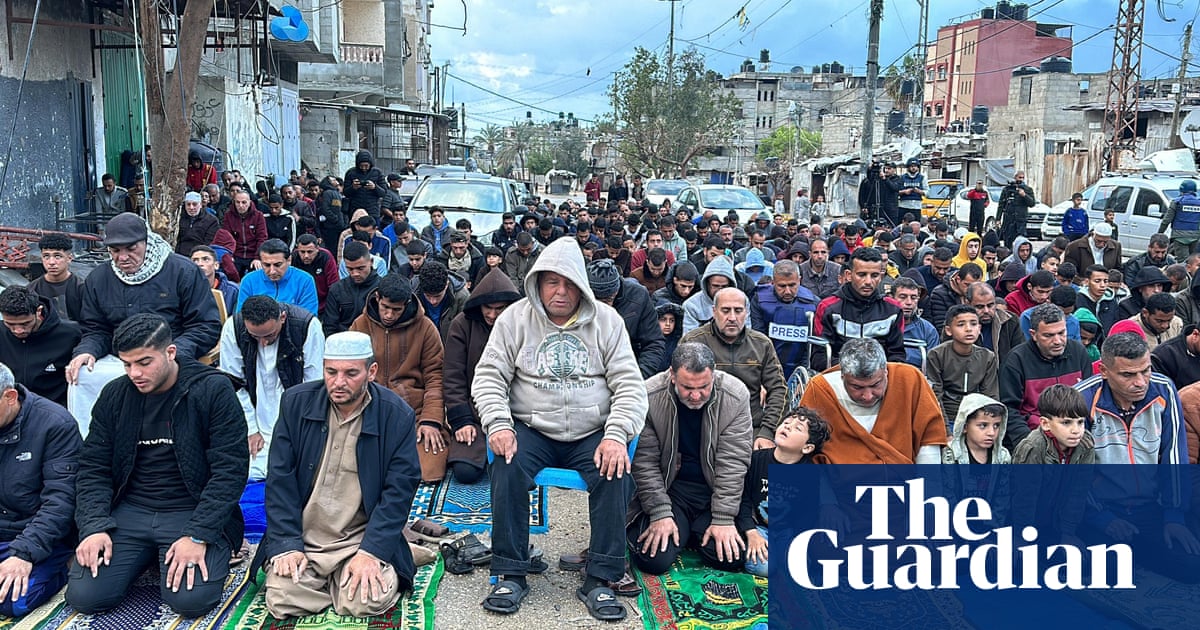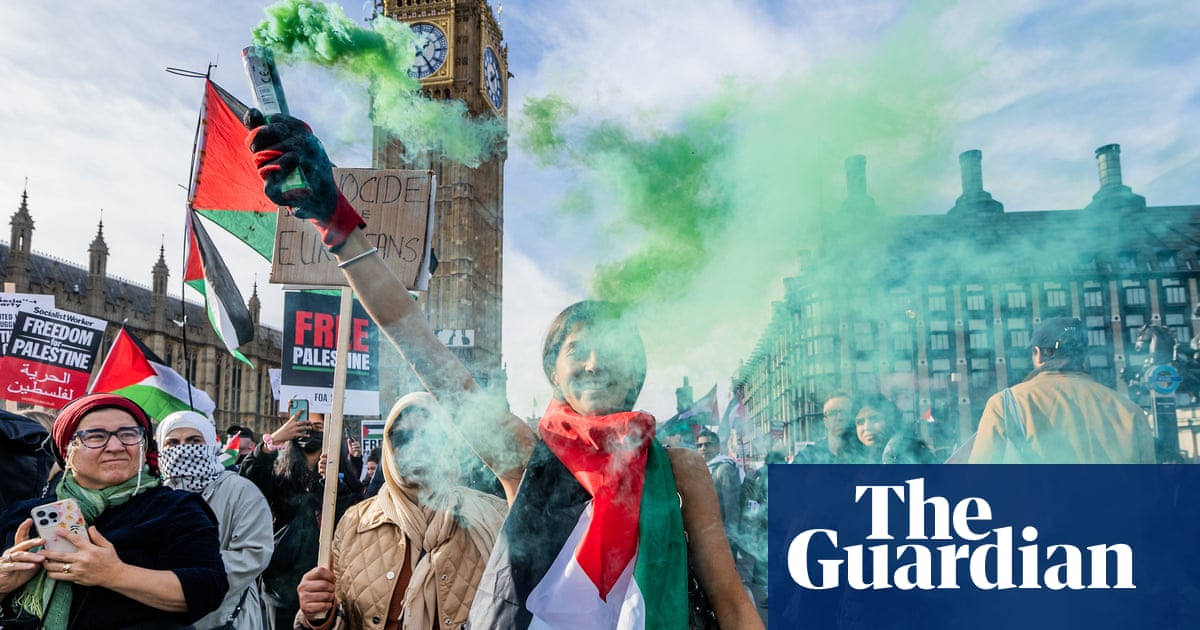
The North Sea shifts from green to grey to washed-out blue, and the rain’s coming down. Eight people are wading out into the water, heads high. Their arms rise up and slap down on the surface, bodies pulled side to side. They are neither waving nor drowning, but dancing. These are performers from Newcastle-based Company of Others, led by director Nadia Iftkhar – she’s in the water too – rehearsing for a series of performances of Grief Floats, which will take place on the sands and in the sea at King Edward’s Bay, Tynemouth.
Grief Floats is a project that began in lockdown when Iftkhar felt surrounded by grief, for those dying of Covid but also “grief at what felt like a fading sense of humanity” when it seemed to her that certain lives were being prioritised over others. She remembers ringing up the company’s sound designer and saying, “I want to make a show about grief, and I think it needs to be in the sea.”
Why the sea? Because the project’s deepest roots stretch further back than 2020. Now 42, Iftkhar had her first miscarriage when she was 21. “I have had many more since then,” she says. It was a loss she didn’t know how to deal with, but she read that creating a ritual could help. For her that became coming down to this bay every year. “I go on a particular day and I spend some time with my grief, being alongside it and getting to know how it is this year.”
The theme expanded, the sea being a place where many lives have been lost, past and present, whether from slave ships or small boats. The dancers brought their own experiences of grief – including ancestral – and there’s a section of the piece where they stand at the edge of the shore and perform rituals informed by their different cultural backgrounds. Researching these around the world led Iftkhar to feel “that we have something wrong around grief in this country,” she says. “There’s so much silence around grief.”
Iftkhar’s work is often dark and messy, she says, but this time she just wanted it to be beautiful. Some of the shows will be taking place at sunrise, the sun framed by the cliffs, and the atmospheric ruins of Tynemouth Priory above. The show will go ahead whatever the weather, as long as it’s safe (a lifeguard and paramedic will always be on hand). Needless to say, the North Sea is cold, and there are no wetsuits. I watch them stride into the water in rehearsal and they don’t even flinch. Dancing in the elements is unpredictable, uncontrollable, the sands literally shifting beneath their feet. “If you see a dancer go down [under the water] and struggle to get up, that is really happening,” says Iftkhar.
Also unpredictable is who else might be on the beach. The ticketed audience will have headphones to listen to the soundtrack, but anyone passing will be able to watch. During the rehearsal, there are shrieking swimmers, a football game, a few friends deciding where to put their picnic blanket. And that’s what grieving is like, Iftkhar points out: life carries on around you, oblivious.
Iftkhar grew up near here, in Walker, the deprived area of Newcastle where Company of Others is based. She was bullied at school as the only person of colour – her dad is from Kashmir – but when the neighbours who babysat took her with them to disco dancing classes at the local community centre, she found something that “felt like a real safe place for me to be in, in a way that school never did”. Dance gave her a sense of belonging, and soon she was “addicted”. Iftkhar left school at 16, unmoored, but eventually found her way to dance training and then into community dance, working with leading practitioners Tamara McLorg, Royston Maldoom and Janice Parker.
In 2016 she set up Company of Others, wanting to create a safe space for people who, like her, had spent their lives being othered, whether because of race, class, disability or something else. Performances such as Grief Floats are only a small part of what Company of Others does. It runs a range of community groups, for young people, over-60s, women of colour and refugees and asylum seekers, as well as community gatherings with shared performances and shared food. All for free. The company has now been awarded “sanctuary status” through the City of Sanctuary programme.
Working with people facing challenge and crisis, Iftkhar wants to bring them the same sense of safety she learned through dance, all rooted in community and care. Grief Floats is an offering to her artists and the audience, “knowing that many of us are grieving in different ways. A way for us to sit with grief and get to know it and take it with us.” How does Iftkhar feel having made a show for public performance that stems from a very personal grief? “It feels like I’m less alone.”
Grief Floats is at King Edward’s Bay, North Tyneside, 28 August-1 September












